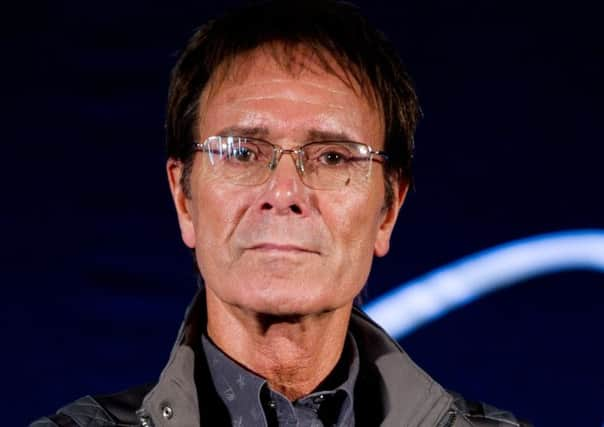Sir Cliff raids ‘raise concerns over anonymity for crime suspects’


Members of the Home Affairs Select Committee said the singer was owed an apology by the force after it handed over sensitive information about a planned search of his Berkshire home in connection with an alleged child sex offence.
Sir Cliff, who has not been arrested or charged with any offence and denies any wrongdoing, had not been contacted by either South Yorkshire Police or the BBC when officers arrived at his penthouse home in August.
Advertisement
Hide AdAdvertisement
Hide AdThe force’s chief constable told MPs that officers were forced to co-operate with the BBC when its reporter Dan Johnson approached its media office and threatened to publish a story about the investigation.
The Government’s response to the committee’s report, by Policing Minister Mike Penning, was published this morning. The original report had no recommendations for the Home Office.
Mr Penning said: “It is clear, though, that this case has raised concerns about the lack of anonymity given to crime suspects and demonstrates that, unless all police officers operate to the highest standards of integrity, policing risks forfeiting public trust.
“The Home Secretary has been clear that transparency and consistency should be at the heart of the criminal justice system. The naming of a suspect should be an operational decision taken on a case by case basis.
Advertisement
Hide AdAdvertisement
Hide Ad“The College of Policing has provided guidance to forces on relationships with the media to use when considering the naming of suspects.”
In its report in October, the committee said the force should not have tried to “cut a deal” after being approached by Mr Johnson during the summer but instead “approached senior BBC executives to explain the damage that such premature disclosure could do to the investigation”.
It added that it was “unfortunate” the force did not contact the Metropolitan Police in London about the original source of the allegation that Sir Cliff sexually abused a teenage boy during a faith rally held by American evangelist Billy Graham in Sheffield in the 1980s.
South Yorkshire Police say Mr Johnson identified the Met’s Operation Yewtree team investigating historic child sex offences as the source of the leak, but the reporter denies this.
Advertisement
Hide AdAdvertisement
Hide AdCommittee chairman Keith Vaz said at the time: “South Yorkshire Police’s handling of this situation was utterly inept.
“The force allowed itself to hand over sensitive information to a journalist and granted him privileged access to the execution of a search warrant. The email exchanges could easily be mistaken for a script from ‘The Bill’.
“The force should have refused to cooperate and explained to senior BBC News executives why the premature broadcasting of a story, which they claimed the journalist threatened, would have prejudiced the investigation.
“No British citizen should have to watch their home being raided by the police live on television. Sir Cliff Richard has suffered enormous and irreparable damage to his reputation and he is owed an apology over the way matters were handled. We are not suprised he wishes to sell his home.
Advertisement
Hide AdAdvertisement
Hide Ad“Police forces should consider carefully how they deal with approaches from journalists on such matters in the future.”
The BBC was also criticised in the report, which said that in response to requests for information, the Corporation had “chosen to hide their reporter behind his superiors, issuing equivocal denials on his behalf